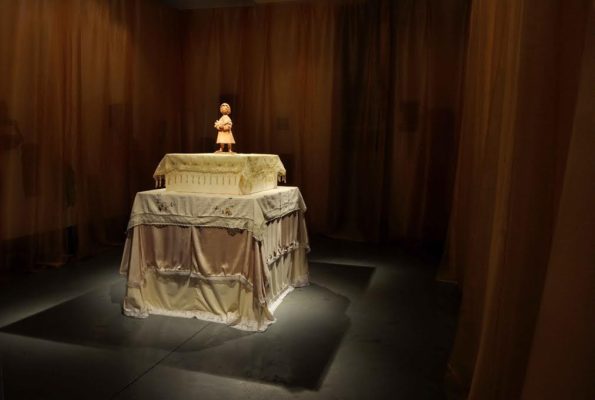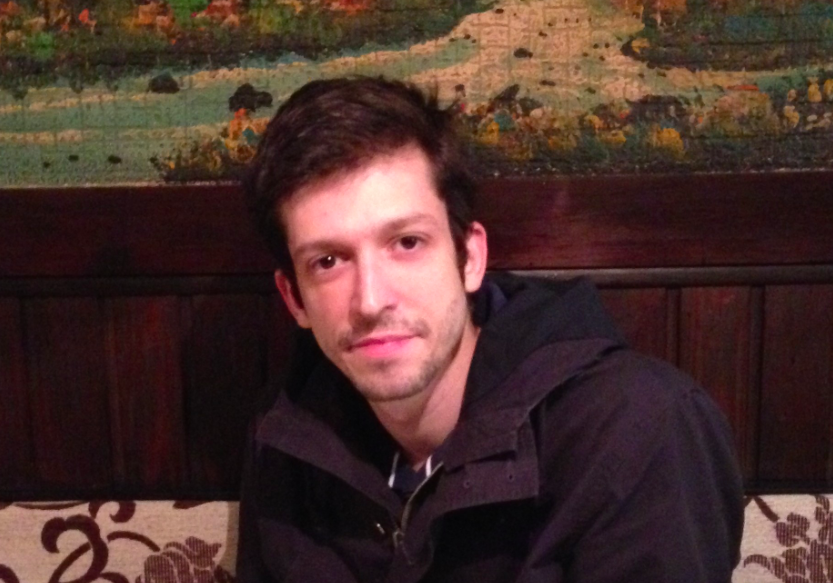Search
To search for an exact match, type the word or phrase you want in quotation marks.
A*DESK has been offering since 2002 contents about criticism and contemporary art. A*DESK has become consolidated thanks to all those who have believed in the project, all those who have followed us, debating, participating and collaborating. Many people have collaborated with A*DESK, and continue to do so. Their efforts, knowledge and belief in the project are what make it grow internationally. At A*DESK we have also generated work for over one hundred professionals in culture, from small collaborations with reviews and classes, to more prolonged and intense collaborations.
At A*DESK we believe in the need for free and universal access to culture and knowledge. We want to carry on being independent, remaining open to more ideas and opinions. If you believe in A*DESK, we need your backing to be able to continue. You can now participate in the project by supporting it. You can choose how much you want to contribute to the project.
You can decide how much you want to bring to the project.

The principles of Justicialism and liberalism, historical mainstays of Argentinean political debate, are interwoven in Marcelo Pombo’s artistic thinking, making him an elusive and cryptic figure. On the one hand, Pombo believes that art should offer remedies to victims and the displaced. Forgotten artists, broken or poor objects, popular taste – not to say bad taste – should be commended because, as rules Justicialism, society should be contemplated from the bottom up, from those who suffer, from the fallen, their habits and their sorrows as the existence of just one single poor child, according to Eva Perón, fills Peronists with rage. And the existence of one single unrecognised artist should touch our hearts. This principle, that dates back to the time Pombo was active at the Centro Cultural Ricardo Rojas in the nineties, resembles the advent of justice according to the esoteric metaphysics of Quentin Meillassoux: the abyssal future in which all those who died in sadness over the centuries will be reborn and find happiness. This is a Christian image, isn’t it? Meillassoux’s philosophy and Peronism have at least one thing in common.
Yet besides our heart we have a brain; in Pombo’s case a liberal, individualist brain. Here is an artist who always declared he did everything in his own interest, even teach at a school for students with special needs at the onset of his career. He said that this job guaranteed him an income and helped him define the problems of his oeuvre. A number of years later, the week
that the Rosario Remix show was supposed to open, the public learnt of the disappearance of activist Santiago Maldonado, presumably by the security forces and as a result of the repression of the Mapuche protest in the confines of the Argentinean Patagonia (where many large foreign landowners have their possessions, that are claimed by the Mapuches as their ancestral land). Pombo, in sign of solidarity, changed the opening date of the show. Was that gesture also in his own interest? Or was it compassion for those who suffer?
Rosario Remix deals with the overcoming of these two sad passions: personal interest and compassion. With a more or less personal intervention, Pombo designed different curatorial situations for the seven floors of MACRo that presented the works of virtually unknown artists, ‘fighters’, in his words, such as textile artist María Cristina Ríos Iñíguez and sculptress Nelly Giménez Vallana. The show seems to defend what the art industry rejects (for its bad taste or its popular nature — literally all that which isn’t represented in the MACRo collection), but in actual fact it embodies Pombo’s main idea, i.e., the re-sacralisation of art. Altars and curtains hint at exaltation and exalt, for Pombo, is a verb that has a direct object: a passion that needs another. In seven chapters, Pombo immerses himself in an emotional sea reflected in the works he chose, decorated, modified, loaned and borrowed. He was both guest and host. Pombo decorated Las leñitas, a carving by Miguel Ángel Budini, creating a unique situation of aesthetic unreality. In other cases, such as the room dedicated to Mele Bruniard, a very little known engraver, he put his hands inside the space of another’s work. Pombo experienced something like a posthumous collaboration, working on digitally modified images presented in picture frames placed on a strange altar covered by tablecloths. Claudia Del Río, an artist from Rosario who is slightly younger than Pombo, ‘a transmitter of tradition and avant-garde’, as we read on the wall text, received a different treatment. Pombo presented xerocopies of a series of drawings, also framed in picture frames and placed on an altar covered by tablecloths (the edges of which, at ground level, had exquisite mud stains), along with personal memorabilia (a photo of the artist in a white tailored dress in which she appears to be celebrating her fifteenth birthday).

The picture frame, a key element in Rosario Remix, transforms any content into personal information. Suddenly art is something that people do. But Pombo transcends the clichés of the artist of artists, even the cliché of friendship, not to speak of the tedious talk about the limits of the task of curators, and points instead to a dot in the sky, much further away. At this curatorial rendezvous we see one artist through another. We see Pombo through his love and we see Del Río, Bruniard and all the others through the same love. Reading a writer who translates another is a bit like exchanging fluids. Rosario Remix is something similar. The show is transpersonal seems to take another look at deindividuated human structures (the ‘superpeople’) that, according to Anatoly Lunacharsky, would emerge after the advent of Communism. Consequently, the show is as far from aesthetic compassion that objectifies its object (Justicialism in art, that needs victims in order to exist) as it is from professional artistic narcissism (the liberal economic ideology on which the art industry weaves its dreams).
Rosario Remix does not only deal with contemporary art criticism recovering the opaque idols of the national artistic past, or with the way in which this criticism could divide the waters of Argentinean art between the programme of international modernisation and the nostalgia Justicialism feels for all devalued provincial art. The show dissolves the suddenly negligible tension between Pombo and other Argentinean artists twenty or thirty years younger who in the second decade of the twenty-first century defended or signalled all that obsolete art excluded by the rules of contemporary art. But this was also a path inaugurated by Pombo in his 2008 show Nuevos artistas del Grupo Litoral held at MACRo. Rosario Remix isn’t the sequel or the second part of this exhibition filled with submerged heroes, but a new and self-conclusive fact. Perhaps the anticipation of another decade.
Rosario Remix is a show that expects viewers to experience ecstasy, nothing less. But this is so difficult, even for specialised audiences: nobody can leave the exhibition in a good mood without scraping their knees until they bleed, crying until their eyes are glassy and acting like the popular hordes on a pilgrimage in honour of their protective saint. Very few people in the art industry believe in saints today (other metaphors are preferred to review the figure of the artist: the high-performance sportsman, the non-productive bohemian, etc.). Even if they pretend to be egotistical saints, they know how to turn suffering into joy, like the monks of certain religious orders who, by praying in silence, expiate the sins of others, the sins of the world.

Claudio Iglesias is an art critic based in Buenos Aires. His latest books are Corazón y realidad (Consonni, Bilbao, 2018) and Genios pobres (Mansalva, Buenos Aires, 2018).
"A desk is a dangerous place from which to watch the world" (John Le Carré)